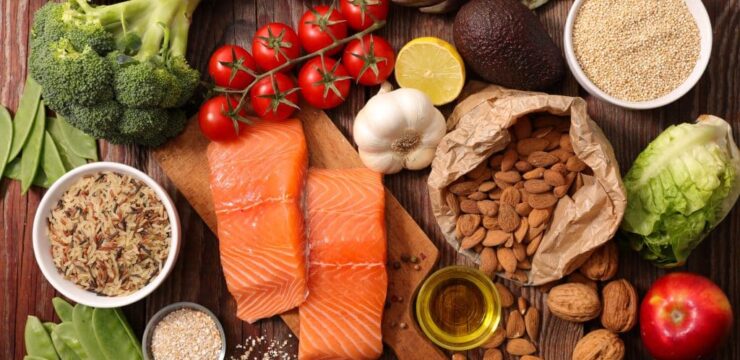Recovery is one of the most important yet often overlooked parts of any fitness routine.
Many people focus heavily on the actual workout, whether that is lifting weights, running, or practicing yoga, but they forget that what happens afterward is just as critical.
Muscles, joints, and the entire body need proper care to repair, rebuild, and grow stronger.
Nutrition plays a central role in this process. The foods and drinks consumed after exercise influence how quickly and effectively the body bounces back, how much energy is restored, and even how motivated someone feels to keep going with their routine. Understanding the role of nutrition in recovery can make a noticeable difference in both performance and overall well-being.
When you exercise, especially during intense sessions, the body experiences tiny tears in muscle fibers, uses up stored energy, and loses fluids through sweat. This is not a negative outcome; in fact, these small stressors are exactly what stimulate the body to adapt and grow stronger. However, in order for these changes to happen in a healthy way, the body needs raw materials in the form of nutrients. Without proper nourishment, recovery slows down, soreness lasts longer, and progress can feel frustratingly limited.
One of the key players in recovery nutrition is protein. Muscles are largely made of protein structures, and after exercise, they are in a state that requires repair. Consuming protein helps provide the amino acids that act as building blocks for this repair process. People who engage in resistance training often notice improved results when they consistently eat protein-rich foods such as eggs, fish, poultry, beans, or dairy after workouts. Even those who prefer endurance activities like cycling or running can benefit from a steady intake of protein, as it helps reduce muscle breakdown and supports long-term endurance capacity.
Alongside protein, carbohydrates also play a significant role in recovery. During exercise, the body relies on stored carbohydrates in the form of glycogen for energy. After a long or intense session, these glycogen reserves can be heavily depleted. Refueling with carbohydrates helps restore these stores so the body is ready for the next round of activity. Whole grain bread, rice, fruits, and starchy vegetables provide excellent sources of carbohydrates that not only replenish energy but also supply additional vitamins and minerals. Pairing carbohydrates with protein in a post-workout meal or snack has been shown to enhance recovery even more, as the two work together to repair muscles and restore energy levels.
Hydration is another vital piece of the recovery puzzle. Sweating leads to the loss of water and electrolytes, and if these are not replaced, fatigue, cramps, or dizziness can occur. Water is usually sufficient for shorter workouts, but for longer or more intense activities, drinks that provide electrolytes can be especially helpful. Rehydrating steadily after exercise supports normal circulation, nutrient transport, and temperature regulation, all of which are essential for recovery. Some people enjoy coconut water, while others prefer homemade smoothies with fruits that naturally contain both water and electrolytes.
Micronutrients, though needed in smaller amounts, are also crucial in recovery. Vitamins and minerals support countless bodily functions that become especially important after physical exertion. For example, magnesium helps relax muscles and reduce cramps, while vitamin C supports collagen production and aids tissue repair. Iron carries oxygen in the blood, which is vital for energy, and calcium strengthens bones and helps muscles contract effectively. Eating a colorful variety of vegetables, fruits, nuts, and seeds ensures the body receives these smaller but mighty nutrients.
Timing can also influence how effective nutrition is for recovery. Many experts suggest consuming a balanced meal or snack within a couple of hours after finishing exercise. This window of time is when the body is especially receptive to absorbing nutrients and using them efficiently for repair. While the exact timing may vary depending on individual needs and schedules, developing a routine of nourishing the body soon after activity can make recovery feel smoother and more consistent.
It is also worth mentioning that recovery is not only about the immediate post-exercise period. Nutrition throughout the entire day matters just as much. Consistently eating balanced meals ensures the body always has what it needs to recover, adapt, and prepare for future activity. This includes having adequate healthy fats, which support hormone production and reduce inflammation. Foods such as avocado, nuts, olive oil, and fatty fish provide these beneficial fats that contribute to long-term recovery and overall health.
Another important aspect is listening to the body’s signals. Hunger, fatigue, and cravings are natural cues that can guide nutrition choices after exercise. While it is helpful to know about proteins, carbohydrates, and vitamins, paying attention to how the body feels can provide even more personal guidance. Some days might require a heartier meal with extra carbohydrates, while other times a lighter option with plenty of vegetables and protein might be more suitable. Flexibility and mindfulness in food choices allow nutrition to align with both physical needs and personal enjoyment.
Beyond the physical benefits, recovery nutrition also impacts mental well-being. A nourishing meal after a workout can create a sense of satisfaction and accomplishment. It can help reduce stress by balancing blood sugar levels and supporting brain function. Knowing that the body has been cared for properly can increase motivation and build a positive relationship with exercise. Over time, these small choices add up, creating a lifestyle where both fitness and nutrition work hand in hand to support a healthier life.
The role of nutrition in recovery after exercise extends further into long-term health as well. Proper recovery reduces the risk of injury, supports consistent training, and enhances performance improvements. It allows people to enjoy exercise more fully, rather than struggling with constant fatigue or soreness. Good nutrition also contributes to healthier bones, joints, and muscles, all of which are vital for staying active at any age.
In summary, recovery is not just a passive waiting period; it is an active process that is deeply influenced by what we eat and drink. Protein helps rebuild muscles, carbohydrates restore energy, hydration maintains balance, and micronutrients ensure smooth functioning of the body. Together, these elements form the foundation for effective recovery. By paying attention to nutrition, exercise becomes more enjoyable, progress is more sustainable, and overall health thrives. Whether someone is a casual walker, a dedicated athlete, or simply trying to stay active, giving nutrition the attention it deserves after exercise can make all the difference.





